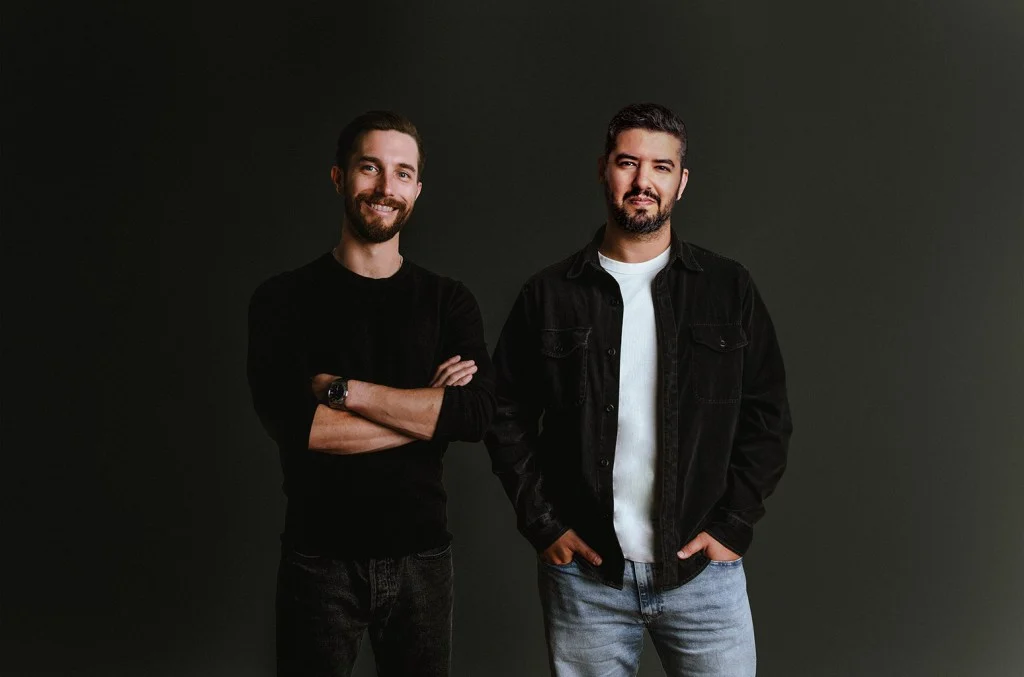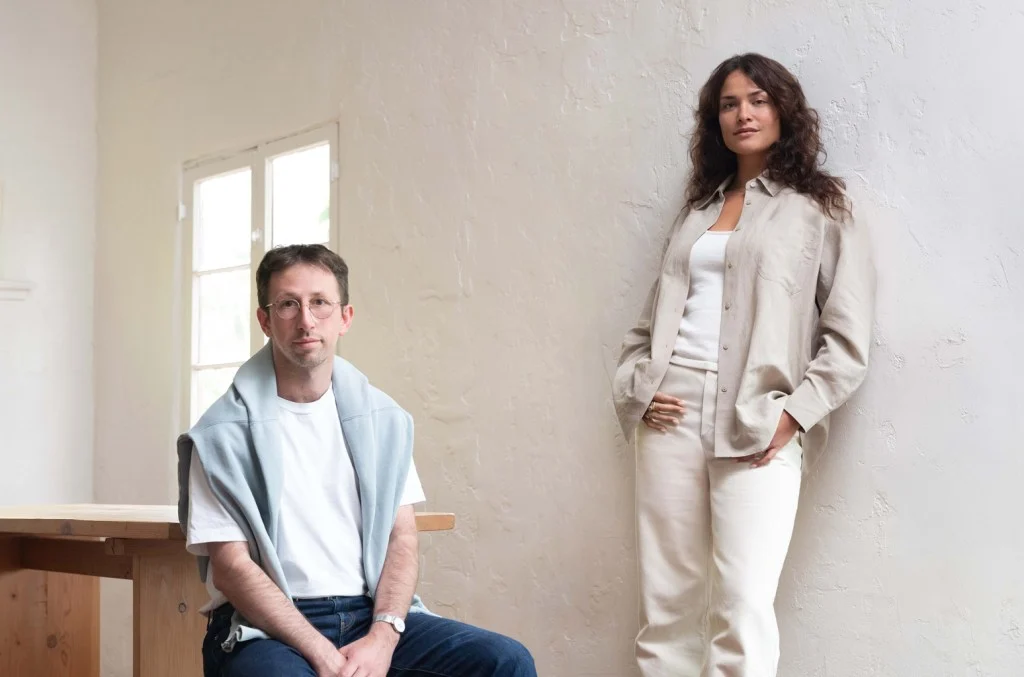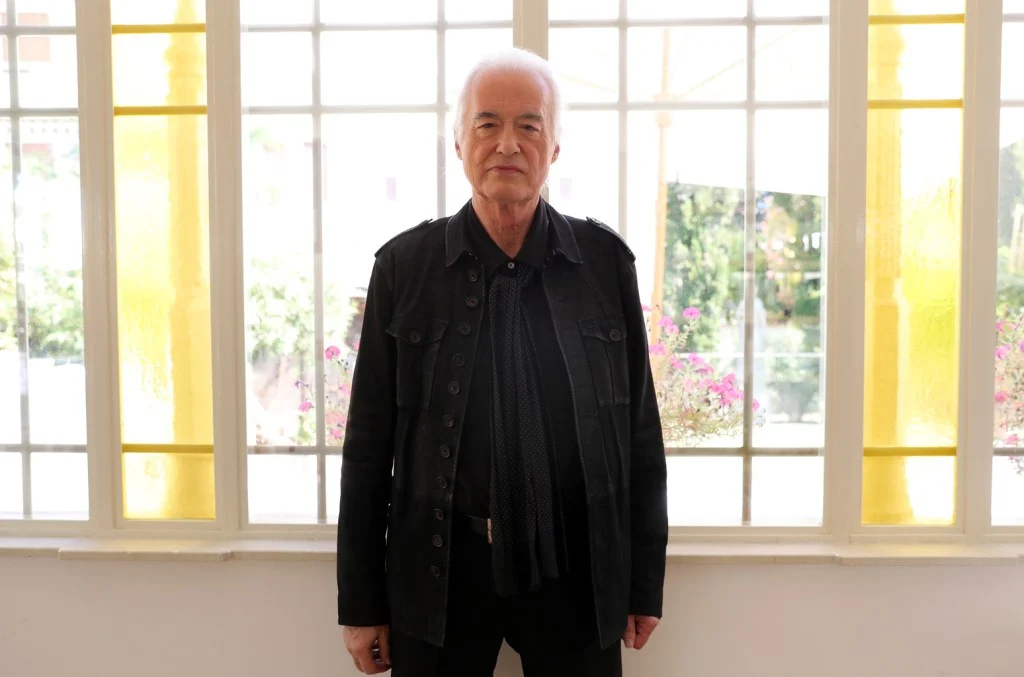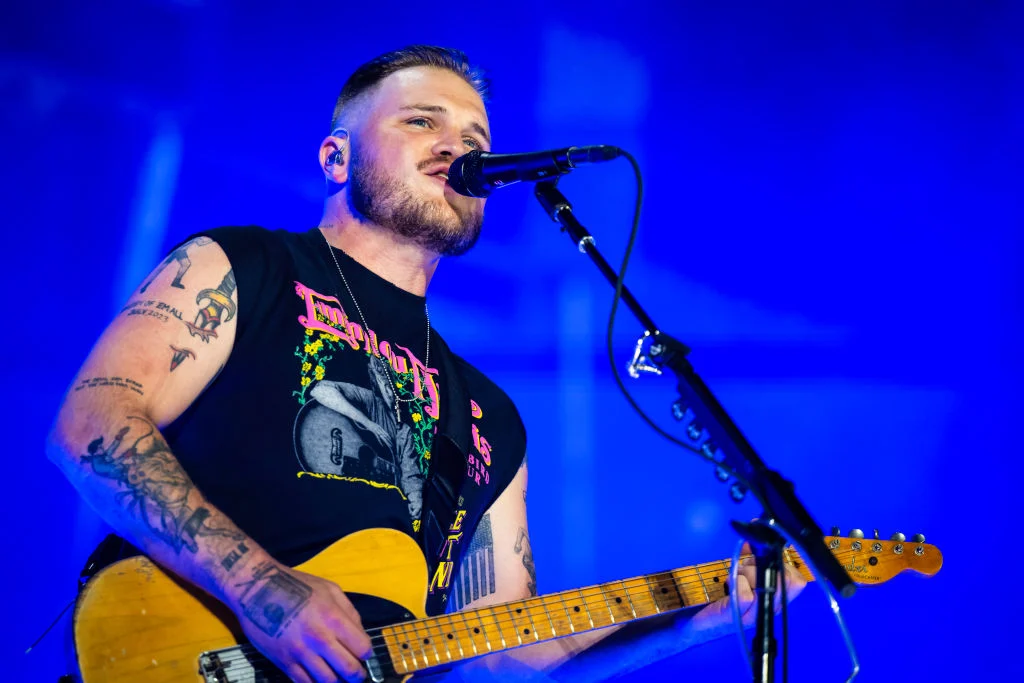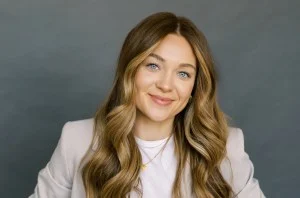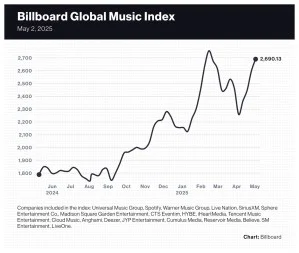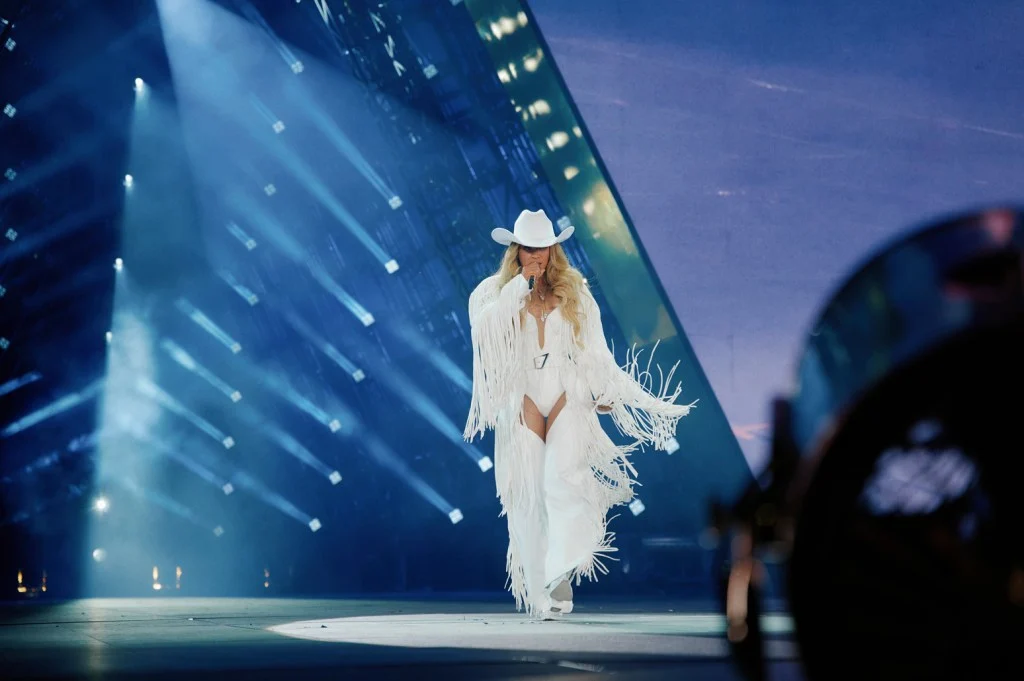Business
Page: 70
Create Music Group (CMG) has acquired indie electronic label Monstercat.
Founded in Waterloo, Canada, in 2011 and now with offices in Toronto and Los Angeles, Monstercat will continue to be operated by president Daniel Turcotte, vp Orri Sachar and director of finance Rob Hill. Monstercat founders Mike Darlington and Ari Paunonen will have advisory roles.
The acquisition will provide Monstercat with access to CMG’s global infrastructure, media portfolio and capital — enabling it to offer more competitive deal structures and better marketing support while expanding its global presence.
Beyond the acquisition, Create plans to invest an additional $50 million into the label over the next two years, with the money specifically going towards artist development, advances, and support for new signees and longtime roster artists.
Since 2011, Monstercat has released more than 8,000 recordings from artists across the electronic spectrum, including Kaskade, Alan Walker, Vicetone, Punctual, Whipped, DJ Diesel (the artist name of Shaquille O’Neal), Koven and more. Monstercat sublabels servicing various subgenres include Uncaged, Silk and Instinct.
Trending on Billboard
“Our mission has always been to build sustainable, long-term careers for exceptional artists,” Turcotte said in a statement. “Create gives us the reach and support to do that at a larger scale, without changing what makes Monstercat special. We’re still artist-first — only now with more tools to serve them.”
“Monstercat is everything an independent label should strive to be — exclusive, globally trusted and capable of breaking artists and songs at the highest levels,” added Create Music Group co-founder/CEO Jonathan Strauss. “Mike, Ari, Daniel, Orri, and the entire Monstercat team have built a culture and community at a scale rarely achieved in the music industry. We are excited to support their mission.”
The news marks the continuation of a recent acquisition spree by Create, with the company announcing in March that it acquired both the deadmau5 catalog and the catalog of the producer’s mau5trap label in a deal valued at $55 million. In April, it announced its acquisition of longtime indie electronic label !K7.
In 2024, Create received $165 million in backing from private equity company Flexpoint Ford, with Strauss at the time saying that the money would be used to scale operations, expand services and fund acquisitions.
The company is now aggressively pursuing acquisitions and investments in key indie labels and artists, with a goal of building intellectual property that can be successfully exploited via its platform. A representative for Create says this platform includes distribution and an owned audience that generates more than 200 billion monthly music streams on digital service providers.
Sara Nix and Joe Mortimer have been named co-heads of creative at Capitol Music Group, based at the label’s iconic Capitol Tower in Hollywood.
Nix joins Capitol after six years as executive producer at Partizan, the company founded by Eternal Sunshine of the Spotless Mind director Michel Gondry. With nearly 15 years of global production experience, she has worked with artists like Pharrell Williams, Billie Eilish and Burna Boy, and directors such as Warren Fu and Ally Pankiw. Her portfolio spans music videos, branded documentaries and short films for major lifestyle and brand clients. Nix began her career in Amsterdam and has led projects across continents.
“I’m thrilled to be joining the Capitol team,” said Nix. “It’s an iconic label with a rich history, and I’m excited to collaborate with the incredible artists here to help them bring their creative visions to life.”
Mortimer joins the mothership after serving as creative director at CMG’s Astralwerks since 2018, where he led global campaigns for Marshmello, Illenium, Zhu, and others, while also collaborating with Capitol artists like The Beatles and Katy Perry. He worked on the Grammy-nominated campaign for Troye Sivan’s Something to Give Each Other. Previously based in London, Mortimer was an art director for acts like Jungle and Bob Moses, and has collaborated with top creatives including Jack Bridgland and Hannah Lux Davis.
Trending on Billboard
In 2025, Mortimer co-created the California Picture Project, a photographic print sale that raised funds for the Los Angeles wildfires, with contributions from over 160 artists including Spike Jonze, Sofia Coppola, Gabriel Moses, Nadia Lee Cohen, and Petra Collins.
“Over the years I’ve worked closely with many of the executives and artists at Capitol,” said Mortimer. “I’m so excited to be taking on this role to steer the creative vision of the label along with Sara.”
The executive team at CMG includes former Geffen head Tom March as chair/CEO and UMPG veteran Lilia Parsa as president, replacing ex-CMG chair/CEO Michelle Jubelirer and president Arjun Pulijal earlier this year. These changes were part of a significant restructuring of Universal Music Group’s label organization, placing UMG’s West Coast labels — Interscope, Geffen, A&M, Capitol, Blue Note, Priority, Verve and Motown — under the oversight of John Janick as part of the Interscope Capitol Labels Group.
“Sara and Joe come to Capitol after having worked with some of the most acclaimed artists, directors and creative visionaries in the world,” said March. “Together they form a potent team to help the incredible artists on our label reach their full creative potential and drive our ongoing transformation at Capitol.”
The Brooklyn Mirage remains closed after building inspectors declined to grant the recently renovated facility a permit to open on Friday (May 2) for the first of two back-to-back concerts by Sara Landry.
Sources monitoring the situation say Mirage officials were given a list of fixes that needed to be completed for the club to open following an extensive renovation at the venue complex Avant Garner, which includes the 80,000-square-foot, 6,000-capacity Williamsburg nightclub. Widely recognized as one of the top stops in New York for electronic and dance acts, the Mirage had operated for years with the support of New York Mayor Eric Adams, whose office has intervened on Avant Gardner’s behalf as part of an ongoing legal fight with New York’s State Liquor Authority (SLA). An Avant Gardner representative declined to comment on the proposed fixes.
The SLA threatened to revoke the Brooklyn Mirage’s liquor license several times in the past and convened a meeting that included representatives from the governor’s office to settle the dispute. Such high-placed help has been absent during this latest debacle, which has left the Mirage unable to open and facing the possibility of further cancellations as soon as Friday (May 9), when Loud Luxury is scheduled to perform at the facility.
Trending on Billboard
“We are doing everything in our power to get back on track — safely and in full compliance — as soon as possible,” reads a statement from Avant Gardener on the Brooklyn Mirage website.
At issue are new design elements at the Mirage, which is said to be one of the largest prefabricated timber structures ever built, at 65 feet high. The venue includes a wraparound LED wall with more than 3,000 LED panels; a fully kinetic shutter system; an L-Acoustics sound system with more than 100 speakers and subwoofers; a 90-foot stage; and 20,000 tons of rigging capacity. Crews have also expanded the space by adding three VIP mezzanines and two general admission dance floors.
“We want to be clear: the venue is show ready and the New Mirage has been built to exacting safety, structural, mechanical and technical specifications,” wrote Mirage officials in an Instagram post. “However, we were not able to meet the final inspection deadline.”
“This isn’t about construction, but compliance,” the post continued. “We’re working closely with city officials and will continue to be transparent throughout this process.”
The Mirage closed months ago with Avant Gardner’s new CEO, Josh Wyatt, promising to reopen the club on Thursday (May 1) after expanding its dance floor from a 5,500-person capacity to 6,250. As the opening date approached, videos and pictures of the renovation project started appearing online, with many fans openly questioning whether the venue would meet its deadline.
Wyatt took over as CEO last fall, and, in an open letter released a few months later, he promised to revive the Brooklyn Mirage as a “world class music and dance experience underpinned by extraordinary design and hospitality.”
More than a decade after Led Zeppelin‘s Jimmy Page settled a lawsuit over the disputed songwriting credits to “Dazed and Confused,” he’s facing a new case accusing him of flouting that earlier agreement. Jake Holmes has claimed for years that he actually wrote “Dazed and Confused” and that Page simply performed it without credit or […]
Zach Bryan has re-upped with Warner Records, Billboard has confirmed.
The extremely prolific singer-songwriter has released three studio albums on the label since first signing with it in 2021: 2022’s American Heartbreak, 2023’s self-titled set and 2024’s The Great American Bar Scene. He’s also put out three EPS and two live sets. The Hollywood Reporter first reported the news, adding that the new deal is for at least two albums.
Bryan’s rise has been meteoric. Billboard named him its top new artist of 2023, and he has dominated at both country and rock since then. “I Remember Everything,” his duet with Kacey Musgraves, and “Something in the Orange” were the top two songs on Billboard’s 2024 year-end Rock Streaming Songs chart. That same year, he ranked third on Billboard’s Top Artists of 2024 and No. 1 on the Top Rock & Alternative Artist chart. His self-titled set became his first album to debut at No. 1 on the Billboard 200, and all three of his full-length Warner Records sets have bowed atop Billboard’s Top Country Albums chart.
Bryan has also been a critical favorite, earning four Grammy nominations, with “I Remember Everything” winning best country duo/group performance at the 65th annual Grammy Awards in 2024.
Trending on Billboard
He’s also a crowd favorite. After headlining the opening night of Stagecoach last month, Bryan is headed to Dublin for three shows in June and then will play BST Hyde Park in London on June 28-29. He will then return stateside for seven stadium shows, including three nights at Metlife Stadium in East Rutherford, N.J.
Bryan helped usher in a new wave of country-oriented acts signing with coastal labels, as Billboard reported in September. Bryan wasn’t the first country-leaning act signed by a major coastal label, but his massive success has proven that an act no longer necessarily needs the usual Nashville methods, including country radio, to break through.
Prior to the pandemic, Nashville labels generally had a lane to themselves when it came to signing country artists, with their relationships at country radio giving them almost exclusive access within the genre. But once COVID hit and touring slammed to a halt, labels became laser-focused on data and analytics as the only available metrics to gauge an act’s success. The coastal labels saw tremendous opportunity and jumped in, with New York and Los Angeles labels signing country-leaning acts with strong streaming numbers and a high TikTok engagement rate, including Warren Zeiders (Warner Records), Koe Wetzel (Columbia), Dasha (Warner Records) and Ella Langley (Columbia); or jointly with a Nashville partner, such as Megan Moroney, who is signed to both Columbia and Sony Nashville.
Warner Records declined to comment on the news.
Big Loud Texas has added a publishing arm, Big Loud Texas Publishing, with Timothy Allen as the publishing company’s inaugural signee. Lizzy Rector will spearhead the new venture, having been hired as publishing director for the Austin-based Big Loud Texas Publishing.
The newly-formed division will work hand-in-hand with Big Loud Texas’ co-founders, three-time Grammy winner Miranda Lambert and producer/writer/musician Jon Randall.
Rockwall, Texas native Allen, whose work as a touring musician, producer and studio musician has included time spent with Shane Smith and the Saints, caught Randall’s attention while performing music from his solo project at Texas Music Revolution. Allen resides just outside of Dallas in Royse City and counts John Moreland and Sufjan Stevens among his influences.
Trending on Billboard
Rector joins Big Loud Texas following a seven-year tenure at Big Machine Music Publishing, where she most recently served as creative manager. A Texas native and Belmont University alum, Rector will lead Big Loud Texas’ new publishing division, focusing on strengthening creative connections between Austin and Nashville.
Lizzy Rector
Chasity Posey
In partnership with Big Loud Records, Lambert and Randall founded Big Loud Texas in 2023, with the aim of promoting and cultivating Texas artists to global acclaim. They signed flagship artist Dylan Gossett along with Mercury Records and also added country neo-traditionalist Jake Worthington to the Big Loud Texas roster. Lambert and Randall, along with the Big Loud Records team, are involved with signing and developing artists for the Big Loud Texas roster, with Randall serving as president of A&R (as well as offering his producer expertise), and Brendon Anthony serving as vice president at Big Loud Texas.
“I grew up listening to incredible storytellers like Guy Clark and Emmylou Harris,” Lambert said in a statement. “Hearing their music made me realize I wanted to be an artist who poured my own truth into songs and said something meaningful through my writing. With Big Loud Texas Publishing, I’m proud to help nurture that same spirit in a new generation of writers, and I’m so excited to welcome Timothy Allen as our first signing.”
“I am so excited that we are announcing the publishing arm to Big Loud Texas,” Randall added. “Obviously songwriting is very close to our hearts. I am so grateful for the opportunity to continue growing the Big Loud Texas brand with Miranda, our partners and our team and giving songwriters a place to call home.”
“We are so grateful to have Lizzy in the Big Loud Texas family,” Anthony said in a statement. “Her experience in publishing and her vision for the company are already proving to be invaluable. Lizzy is a strong leader and a champion of songwriters. We could not have asked for a better person to take the reins.”
Randall said of signing Allen, “He is one of the most talented and musically versatile singer songwriters I’ve ever met. We so appreciate Tim entrusting us with his talent and craft and we are so proud to be a part of his musical a journey.”
(L-R): Timothy Allen, Brendon Anthony and Jon Randall
Jordan Pierce
Though economic uncertainty lingers, some music companies’ stocks got boosts following their first quarter earnings releases this week, while a better-than-expected jobs report on Friday (May 2) lifted stocks across the board.
K-pop companies were among the top performers of the week. Led by HYBE’s 13.8% gain following its first quarter earnings report on Tuesday (April 29), the four South Korean companies had an average share price gain of 10.3%. JYP Entertainment rose 11.7% and SM Entertainment, which announces earnings on Wednesday (May 7), improved 9.0%. YG Entertainment gained 6.6%.
The 20-company Billboard Global Music Index (BGMI) rose 3.6% to 2,690.13, its fourth consecutive weekly improvement. At 2,690.13, the BGMI has improved 19.1% since a two-week slide and stands just 2.4% below its all-time high of 2,755.53 set during the week ended Feb. 14.
Trending on Billboard
Music stocks slightly outperformed the Nasdaq and S&P 500, which rose 3.4% and 3.1%, respectively. Foreign markets were mostly positive but more subdued. The U.K.’s FTSE 100 rose 2.2%. South Korea’s KOSPI composite index gained 0.5%. China’s SSE Composite Index lost 0.5%.
Universal Music Group (UMG) gained 4.3% to 25.86 euros ($29.23) following a quarterly earnings report showing that recorded music subscription revenue grew 11.5% and overall revenue improved 11.8%. JP Morgan analysts’ conviction on UMG “remains very high,” and the strong quarter “should help rebuild confidence and share price momentum” dented by Pershing Square’s sale of $1.5 billion in UMG shares, analysts wrote in an investor note on Tuesday.
Spotify finished the week up 3.7% to $643.73 despite its shares dropping 3.4% on Tuesday after the company’s first-quarter earnings report included guidance on second-quarter subscription additions that seemed to underwhelm investors. Gross margin of 31.6% beat Spotify’s 31.5% guidance. Loop Capital raised Spotify to $550 from $435, while Barclays lowered it to $650 from $710. UBS maintained its $680 price target and “buy” rating. Guggenheim maintained its “buy” rating and $675 price target.
Live Nation, which reported first quarter earnings on Thursday (May 1) and predicted a “historic” 2025, gained 2.3% on Friday and finished the week up 0.7%. A slew of analysts updated their price targets on Friday. Two were upward revisions: Jefferies (from $150 to $160) and Wolfe Research (from $158 to $160). Two were downward revisions: Rosenblatt (from $174 to $170) and JP Morgan (from $165 to $170).
Nearly all streaming stocks posted gains. LiveOne was the week’s top performer, jumping 18.0% to $0.72. Chinese music streaming companies Cloud Music and Tencent Music Entertainment gained 11.6% and 7.1%, respectively. French music streamer Deezer gained 1.4% to 1.44 euros ($1.63) after the company’s first-quarter earnings on Tuesday. Abu Dhabi-based Anghami fell 3.1% to $0.62.
Cumulus Media fell 33.% to $0.14. Most of the decline came on Friday as the stock ceased trading on the Nasdaq and began trading over the counter.
Created with Datawrapper
Created with Datawrapper
Created with Datawrapper
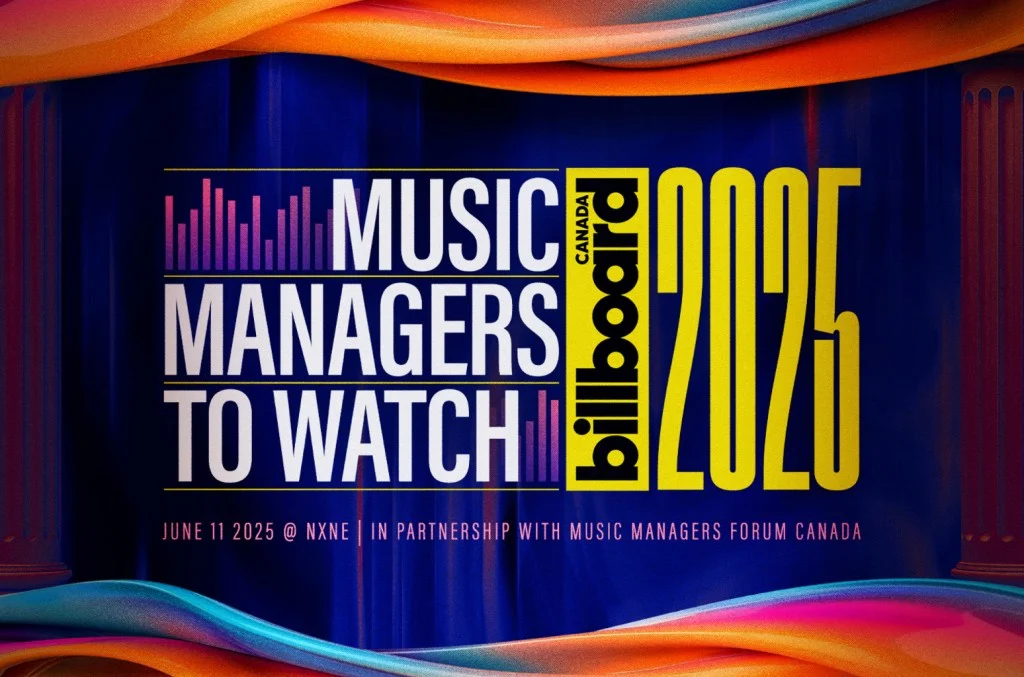
Billboard Canada is getting ready to spotlight some of the most vital players in the music industry: music managers.
Managers to Watch — Billboard’s spotlight on the teams behind music’s biggest breakout artists — will expand to Canada for the first time at this year’s NXNE festival.
A special invite-only Managers to Watch reception will take place on June 11, directly before Billboard Canada Power Players. The event will build on Billboard Canada’s new partnership with Music Managers Forum, which is moving its Honour Roll celebration of the most legendary managers in the business to NXNE this year.
Both recognitions will be given out at the Managers to Watch reception, after which all invited managers will be invited to stay and mingle with the most influential members of the industry at Billboard Canada Power Players.
The event will foster community and opportunity for self-managed artists and managers, who play a critical role in the success of Canadian artists on the international stage.
Trending on Billboard
“We’re proud to partner with MMF Canada to spotlight the managers powering the next wave of talent,” says Mo Ghoneim, president of Billboard UK and Billboard Canada. “They’re key players behind many of the industry’s biggest breakthroughs, and we’re excited to recognize their contributions on a global stage through Billboard.”
The Music Managers to Watch list will feature a hand-selected list of artists and self-managed artists making waves in the industry. It will be chosen by the editorial team at Billboard Canada. Managers can submit for consideration using this form.
Find more info here. – Richard Trapunski
CIMA Makes an Appeal to Prime Minister Mark Carney
The votes were still being tallied in the Canadian federal election on Monday morning (April 29) when the Canadian Independent Music Association (CIMA) sprang into action. The trade org issued a press release congratulating Mark Carney and the Liberal Party of Canada on their electoral victory while urging Carney to, in its words, “make the investment in and promotion of Canadian-owned cultural businesses a top priority.”
The statement stressed that “the global cultural economy is changing rapidly, and with it come significant risks to Canada’s cultural and economic sovereignty. Recent developments — including TikTok’s decision to walk away from licensing negotiations with Merlin, a key representative of independent music worldwide; Universal Music Group’s acquisition of Downtown Music’s assets; and the legal challenge by global tech platforms, in partnership with foreign-owned multinational record companies, to avoid regulation under Bill C-11 — starkly illustrate the growing concentration of global corporate power in Canada’s cultural sector. If left unchecked, these trends threaten to erode Canadian ownership of intellectual property, diminish our global competitiveness, and compromise the future of Canadian cultural exports.”CIMA emphasizes four priorities for the most industry and suggests the government act quickly:
Prioritize Canadian ownership in cultural policy and investment frameworks;
Strengthen competition, trade, and copyright policies to protect Canadian IP holders;
Champion independent Canadian businesses in international markets;
Defend Canada’s right to regulate its cultural industries against multinational corporate resistance.
CIMA concluded by noting, “We are eager to work with your government to secure a strong future for Canadian culture — Canadian culture remains Canadian-owned, Canadian-created, and world-renowned.”
Read more here. – Kerry Doole
Black Eyed Peas’ Apl.de.Ap and Other Lapu Lapu Day Festival Performers Speak After Van Attack in Vancouver
Artists are sharing their heartbreak after a deadly attack at Vancouver’s Lapu Lapu Day festival.
The attack killed 11 people, leaving dozens more injured, when an SUV drove through the block party on Saturday (April 26.) A 30-year-old man has been charged with eight counts of second-degree murder.
Organized by Filipino BC, the festival is a celebration of Filipino hero Datu Lapu-Lapu and an annual occasion for the Filipino-Canadian community to celebrate resilience and cultural heritage.
The attack took place in the evening, following a day of performances from artists like The Black Eyed Peas‘ apl.de.ap (the Filipino-American artist also known as Allan Pineda Lindo), multi-disciplinary artist Kaya Ko and R&B singer Sade Awele. Festival performers are sharing messages and calling for support for the B.C. Filipino community following the attack.
Apl.de.ap and Filipino singer J. Rey Soul had recently left the stage after finishing their headlining set when the attack took place.
“It’s hard to describe the shock and heaviness we feel,” they shared in a joint statement on social media. “Please keep the victims, their families, and the organizers in your prayers.”
“The one thing I have noticed, from the audience to the messages sent around, is the sense of community that wraps its loving arms around us.”
Festival chair RJ Aquino spoke about the support that’s been pouring in from around the world.
“It’s not lost on us … that the spirit of the festival was about that resistance, resilience, that courage, that strength,” he told reporters, per CBC.
“And you know, we’re going to have to call that up in ourselves.”
Awele shared her prayers for the B.C. Filipino community on Instagram. “I was barely able to sleep thinking about the tragic incident that occurred after the festival,” she said. “We can’t keep living like this — treating each other with hate and violence. We have to do better.”
Read more here. – Rosie Long Decter
The owner of Las Vegas’ Sphere has hit Beyoncé with a cease and desist letter over fan-shot concert footage that shows the superstar picking up a computer-generated version of the iconic Las Vegas venue and briefly juggling it between her hands, Billboard has confirmed.
“Beyoncé — many orders of magnitude larger than the Sphere venue — leans over, picks up the venue, and looms over it,” the letter reads, according to the New York Post, which first reported the news, leading to “significant speculation that Beyoncé will end her tour with a Sphere residency.” (Billboard has not independently obtained the letter.)
The filmed sequence, which plays during an interlude at Beyoncé’s newly launched Cowboy Carter tour, irked Sphere Entertainment Co. executive chairman/CEO James Dolan because Sphere unsuccessfully lobbied the “Texas Hold ‘Em” singer to perform at the venue in the past, sources with knowledge of the negotiations tell Billboard.
Trending on Billboard
Attorneys for Dolan, who is also the chairman/CEO of Madison Square Garden Entertainment Group, want Beyoncé to cut the brief sequence from her three-hour concert, which she performed for a second time at SoFi Stadium in Los Angeles on Thursday (May 1).
The letter is addressed to Beyoncé’s production company, Parkwood Entertainment, on behalf of Sphere Entertainment Group and authored by Kathleen McCarthy of the law firm King & Spalding. In the letter, Spaulding accuses Parkwood of using imagery of the Sphere’s likeness “without permission” and accuses the singer of misleading her fans.
“It has recently come to SEG’s attention that a Cowboy Carter tour interlude video contains the unauthorized use of SEG’s intellectual property,” the letter reads. “SEG is sure that multiple aspects of the interlude video, including other brands, clips and music, were duly cleared by the tour with rights permissions from the rights holders whose works were used in the video, as is common practice. SEG, however, was never asked and the prominent appearance and manipulation of SEG’s Sphere™ venue in the video is unauthorized.”
“SEG demands that the tour cease and desist from using the Sphere™ venue in the video immediately,” the letter continues, demanding that Parkwood “refrain from using this imagery on any merchandise, promotional or marketing materials, or in tour movies, etc. Should you fail to do so, SEG reserves all rights to take further action as SEG deems appropriate without notice to you.”
Beyoncé has never played Sphere in Las Vegas, although her representatives reportedly held talks with officials at Sphere Entertainment about a possible residency at the venue several years ago. Those discussions never materialized into bookings and Beyoncé has instead opted to play Allegiant Stadium when her Cowboy Carter tour stops in Las Vegas on July 25 and 26.
Billboard reached out to representatives for Beyoncé and tour promoter Live Nation for comment, but did not receive a response by press time.
Federal prosecutors have unveiled a new indictment against Lil Durk in his murder-for-hire case — only this time, they’ve dropped all reference to lyrics that the star’s lawyers had claimed were being unfairly weaponized against him.
The new “superseding” indictment, released Friday (May 2), came six months after prosecutors first charged the Chicago drill star (Durk Banks) with murder-for-hire, accusing him of ordering members of his Only the Family (OTF) crew to carry out a 2022 attack on rival rapper Quando Rondo that left another man dead.
Though it added a new charge of stalking, Friday’s new indictment is most notable for what it removed: Any mention of Durk’s lyrics. Last month, his lawyers argued that the cited song was clearly unrelated to the shooting and had been unfairly used against him; in a social media post Wednesday (April 30), Durk’s family said he was the latest rapper to be “criminalized for their creativity.”
Trending on Billboard
In separate court filings on Friday, prosecutors acknowledged removing Durk’s lyrics from the new indictment, but said the move would not weaken the case against him.
“Defendant Banks has presented a false narrative that he is being prosecuted and detained because of his violent lyrics. This claim is, and has always been, baseless,” prosecutors write. “Just like every iteration of the indictment before it, the [new indictment] contains significant allegations that show defendant’s alleged role in the execution-style murder of [the victim] on a busy street corner in Los Angeles.”
Durk’s attorney, Drew Findling, filed his own response to the new indictment in court Friday, arguing that “it appears that the government has conceded” the “hotly contested” dispute over the lyrics. He also noted that prosecutors had deleted another passage from the indictment that directly accused one of Durk’s co-defendants of paying a bounty at Durk’s direction.
A spokesman for the U.S. Attorney’s Office in Los Angeles declined to comment on the new indictment. Findling did not immediately return a request for comment.
Durk was arrested in October on murder-for-hire and gun charges related to the September 2022 shooting at a Los Angeles gas station, which left Rondo (Tyquian Bowman) unscathed but saw his friend Lul Pab (Saviay’a Robinson) killed in the crossfire.
In court filings, prosecutors have argued that Durk’s OTF crew was not merely a well-publicized group of Chicago rappers, but a “hybrid organization” that also functioned as a criminal gang to carry out violent acts at his behest. One of them was the Rondo attack, the feds say, allegedly carried out in retaliation for the 2020 killing of rapper King Von (Dayvon Bennett), a close friend of Durk’s.
To back up that claim, prosecutors quoted lyrics from a song called “Wonderful Wayne & Jackie Boy” that allegedly referenced the shooting. They claimed Durk “sought to commercialize” Lul Pub’s death by “rapping about his revenge” on Rondo: “Told me they got an addy (go, go)/ Got location (go, go)/ Green light (go, go, go, go, go),” Durk raps in the track. “Look on the news and see your son/You screamin’, “No, no” (pu–y).”
The use of rap music as evidence in criminal cases is controversial, as critics argue it threatens free speech and can sway juries by tapping into racial biases. Over the past few years, the practice has drawn backlash from the music industry and led to efforts by lawmakers to stop it. But it has continued largely unabated, most notably in the recent criminal case against Young Thug in Atlanta.
Last month, Durk’s lawyers sharply pushed back — arguing that “Wonderful Wayne” could not have referenced the Rondo shooting because the rapper wrote and recorded his verses “seven months before the incident even happened.” Mockingly asking if the government was prosecuting Durk “on a theory of extra-sensory prescience,” the star’s lawyers called the lyric allegations “false evidence” that had been unfairly used to indict him and to deny him pre-trial release.
Ahead of Friday’s new indictment that dropped the lyrics, prosecutors had strongly defended their use of Durk’s music. In a court filing earlier this week, the feds said he was not being prosecuted “because of his lyrics,” but suggested they might still be cited as evidence in the case.
“Defendant has repeatedly used his pulpit as a voice of violence, publicly rapped about paying for murders, hunting opponents with machineguns, ‘bounty hunters’ in Beverly Hills — and other lyrics that have a striking similarity to the modus operandi used to kill S.R.,” the government wrote. “It’s true that words have power, and that defendant’s words about ‘green lighting’ violence and placing bounties may be admissions of criminal conduct. That is for a jury to decide.”

 State Champ Radio
State Champ Radio 